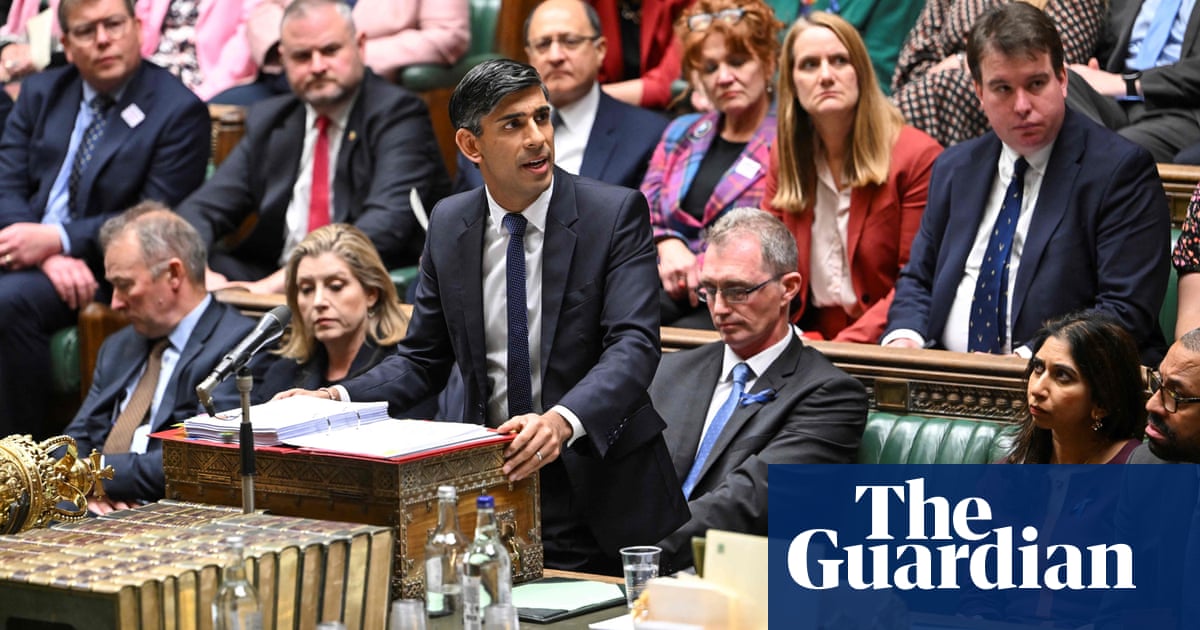
Benjamin Netanyahu has been taken to hospital and fitted with a pacemaker, raising new questions about the Israeli prime minister’s health, while protests against his government’s judicial overhaul reached fever pitch ahead of a crucial vote in the Knesset.
The 73-year-old was admitted to the Sheba medical centre on Saturday night after a heart monitoring device implanted last week showed anomalies, and he underwent the emergency procedure early on Sunday. The operation went smoothly and he is expected to be discharged later in the day, according to doctors.
Pacemakers are used in patients whose hearts beat too slowly, sending electrical pulses that maintain a normal rhythm in the heart. In a statement, the prime minister’s office said he felt fine, and would be able to resume some duties ahead of a marathon vote in parliament this week over abolishing the “reasonableness” clause that allows the supreme court to overrule government decisions.
Netanyahu was admitted to hospital overnight a week ago with dizziness after spending time with family on the Sea of Galilee during a heatwave. Doctors confirmed a diagnosis of dehydration, and said that while the prime minister’s heart was “in excellent condition”, he had been fitted with a monitoring device “for the sake of routine monitoring”.
The Israeli daily newspaper Haaretz reported on Sunday however that cardiac arrhythmia had been detected in last week’s hospital visit, although that information was not publicly released at the time.
Netanyahu has had a known abnormal conduction disorder for years, but is otherwise thought to be in good health. He also spent a night in hospital last October, in the middle of election campaigning, after feeling unwell during a Yom Kippur prayer service.
Sunday’s weekly cabinet meeting was postponed as a result of Netanyahu’s emergency operation, and a security assessment of the effect of the legal dispute on the military and upcoming trips to Cyprus and Turkey rescheduled. The deputy prime minister, Yarin Levin, stood in for the premier during his admission.
The hospitalisation of Israel’s longest-serving prime minister comes amid the country’s worst ever domestic crisis, sparked by Netanyahu’s government’s attempts to rein in the powers of what critics say is a supreme court with too much power.
The judicial overhaul, introduced after Netanyahu returned to office at the end of last year at the head of a coalition of far-right and ultra-religious parties, has given rise to an unprecedented protest movement, including pressure from Tel Aviv’s hi-tech sector. It has damaged the value of the shekel, and drawn criticism from the US, Israel’s most important international ally.
It has also sown divisions within the military, which is mostly viewed as apolitical. Thousands of reservists have announced that they will not report for duty if the changes are passed into law, raising fears over operational readiness. On Saturday, dozens of former security officials published an open letter urging Netanyahu to call off the vote and seek consensus for reforms instead.
Polls show that Israelis are deeply divided about the overhaul in its current form.
Proponents of the changes say they are needed to rein in the perceived leftwing bias of the supreme court, which plays an important checks and balances role in a country with no second legislative chamber or formal constitution. Critics have raised fears of democratic backsliding and say the overhaul will aid Netanyahu’s fight against graft charges, which he denies.
Mass protests around the country continued as they have done for the past seven months, and an estimated 40,000 people finished a four-day march from Tel Aviv to Jerusalem, culminating in demonstrations outside the parliament building on Saturday night.
Thousands of people remained camped out near the Knesset as Sunday’s parliamentary session got under way. A counterprotest of government supporters in Tel Aviv is also expected on Sunday night.
A final vote on scrapping the “reasonableness clause”, expected by the end of this week, would be the first major piece of legislation to be approved. Its backers are determined to pass the law before the Knesset breaks up for the summer recess at the end of July.












